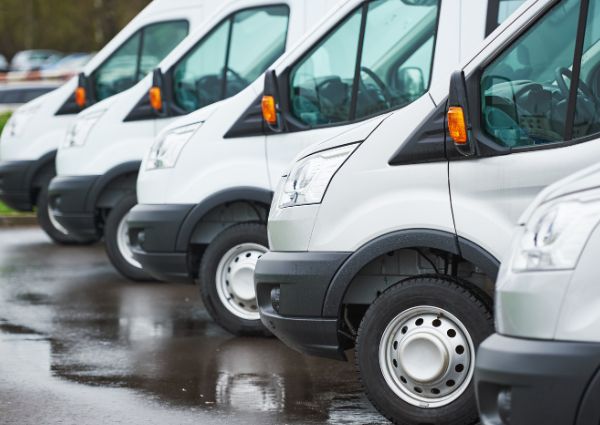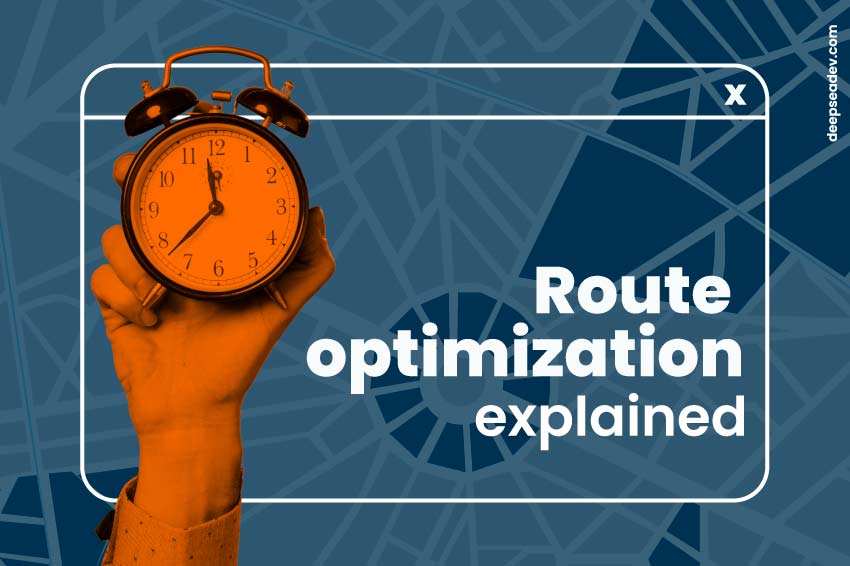Route optimization arises as an important aspect of IoT fleet management. Companies that want to keep competitive in the market need to start working on route optimization, since it will have a significant impact on their operations and reputation.
What is route optimization?
Route optimization refers to the process of determining the most efficient and cost-effective route or sequence of stops for a given set of destinations or delivery points. It involves finding the optimal path that minimizes travel time, distance, or fuel consumption while considering various constraints such as traffic conditions, vehicle capacities, time windows, and specific requirements of the operations.
The goal of route optimization is to maximize productivity and resource utilization by minimizing unnecessary detours, reducing driving distances, and improving overall operational efficiency.
How can optimizing routes benefit logistics companies?
Route optimization relies on several factors to guarantee its success. With the help of IoT (Fleet device), advanced algorithms, mapping technologies, and platforms, logistics companies can optimize their routing, logistics operations, and transportation networks.
Plan faster than before

When companies don’t have the capacity for optimal routing, they spend a lot of time trying to assign every driver to specific routes, and taking into account all that it encompasses, it is not an easy task.
If a logistics company has the technology and elements for route optimization, they will be capable of scheduling their drivers in a short period of time. They could even program delivery routes up to 4 weeks in advance.
This represents a huge advantage in the way the company operates, and the resources can be better used on a daily basis.
More productivity, lower costs
Route optimization brings a higher productivity and lower costs to companies that rely on deliveries, these are some of the benefits.
Reduced labor and fuel costs:
Optimized routes help minimize the time spent on the road, which translates into reduced labor costs. With shorter routes, drivers can complete their tasks more efficiently, requiring fewer hours on the job.
Additionally, route optimization helps minimize fuel consumption by reducing unnecessary detours and ensuring the most direct paths are taken. Lower fuel costs contribute to overall cost savings for logistics companies.
Improved delivery times:
Route optimization ensures that deliveries are scheduled in the most logical and time-efficient sequence. This results in faster delivery times, and more productivity.
Real-Time Adaptability:

This also falls into the category of more productivity. When companies count on route optimization systems, they can quickly make decisions with real-time data, such as traffic updates and weather conditions (See IoT telematics).
This new capacity for decision making helps companies to adapt fast to unforeseen circumstances. By dynamically adjusting routes based on live information, companies can avoid delays, reroute vehicles, and maintain optimal operations even in changing conditions.
Vehicle maintenance:

Optimizing routes help reduce wear and tear on vehicles by minimizing excessive mileage and idle time. By avoiding unnecessary detours and congestion-prone areas, logistics companies can prolong the lifespan of their fleet and reduce maintenance costs.
On the other hand, this also helps minimize vehicle downtime, allowing for more consistent and reliable operations of the company (see fleet management challenges).
Resource allocation:
A well carried out route optimization not only considers the best possible ways for delivering packages on time, but it also has to consider several factors such as vehicle capacity, weight limits, and delivery requirements.
By matching the right vehicles and drivers to the appropriate routes, companies can ensure optimal resource allocation. This prevents underutilization of vehicles and reduces the need for unnecessary vehicle transfers or additional resources, leading to cost savings in the medium term.
Customer satisfaction
Let ‘s be honest. Customers have become more demanding in terms of receiving their products as fast as possible. Logistics companies need to care about customer satisfaction and retention.
If a logistics company wants to enhance their reputation and customer trust, they need to implement systems that allow optimal routing (See smart fleet management). This way, companies will likely meet delivery deadlines and keep their customers loyal to them.
If you want to build or develop a device or system that will help you with route optimization, click on the button below and know more about our IoT fleet tracking device.





